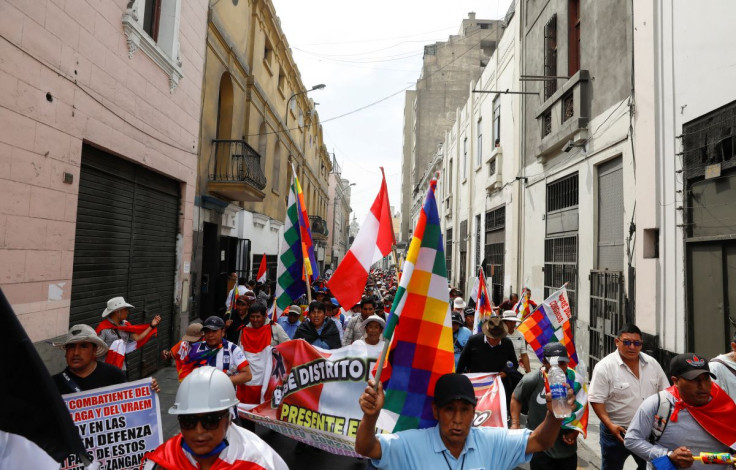After two more protesters were killed in a town in Southern Peru, thousands descended upon Lima's capital on Thursday to demand the resignation of President Dina Boluarte, as protests against her administration have only continued to get stronger and more violent.
Demonstrators came into the city at night as police fired tear gas at the crowd to keep them away from more vital areas of Lima. Later on, the protestors were able to turn many roads into pedestrian areas as they continued to express their discontent with the government, according to the Associated Press.
Many there are angry at Boluarte’s role in ousting former President Pedro Castillo and are demanding her resignation, among other things. Street sellers were reportedly selling anti-Boluarte T-shirts to commemorate the occasion, including “Out, Dina Boluarte” and “Dina murderer, Peru repudiates you.”
Among their other demands are the release of Castillo, the closure of Congress, the scheduling of earlier elections in the country, and changes to the Constitution.
Students in the National University of San Marcos are reportedly housing some of the protesters who traveled to Lima for the protest, as the government sends out over 11,800 police officers in an attempt to keep order in the capital.
The protesters streaming into Lima has been a surprising development due to the protests typically being done in the southern region of the country where much of the support of Castillo stems from. Many are hoping that this new development will force Boluarte and the government to take notice of them and use less violent methods to disperse the crowd.
The government’s reaction to the protests in that region has been violent, with at least two more people dying in the town of Macusani on Wednesday before the protests in the capital after protesters set fire to the town’s police station and judicial office, ABC News reported.
This puts the number of deaths due to the protests at 53 people. This has caused the government to garner criticism for its violent reaction against the protests, with many starting to believe that “no dialogue is possible” with the Boluarte administration due to how they have handled the situation.
While Boluarte has been supportive of pushing the elections earlier to 2024, she has been resistant to all the other demands, including her resignation.

© 2025 Latin Times. All rights reserved. Do not reproduce without permission.





